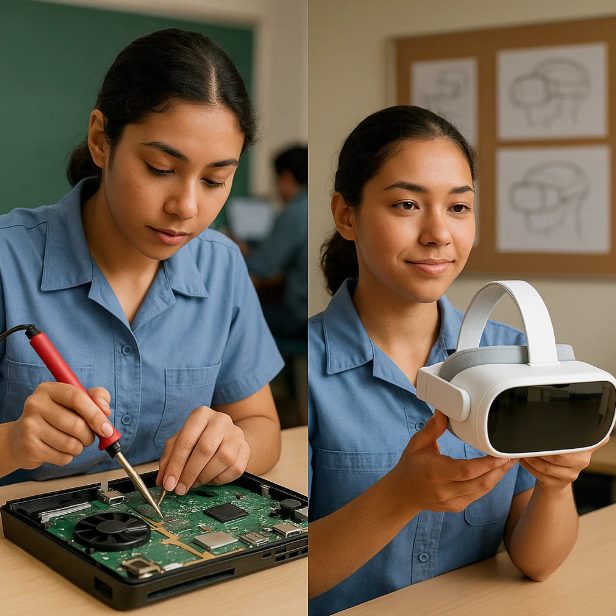What Is Trade Education’s Role in Building Tomorrow’s Tech Leaders?


We always picture tech leaders as college grads, hoodie-wearing coders with four-year degrees. But that story is only part of the truth. These days, the digital world changes so fast, a single path just won’t cut it. So where do you look if you want real skills for tomorrow? The answer might surprise you: trade education.
Let’s dive into how non-traditional learning, think trade schools and hands-on programs, prepares people for tech jobs we haven’t even dreamed up yet.
Honing Hard Skills and Quick Minds
Trade schools are famous for teaching practical stuff fast. In months, not years, you can master things like computer repair or digital design basics. Imagine fixing a game console circuit board on Tuesday, then building an AR headset model by Friday. This speed isn’t just convenient, it actually mirrors how quickly technology itself moves.
But there’s something else hidden here too: adaptability. Because when students learn by doing (and sometimes failing), they become better at solving problems no textbook could predict.
If you’re curious about which programs are out there right now that mix old-school craft with high-tech dreams, visit their website to see what modern trade education looks like in action.
Digital Intersections: Where Code Meets Craft
Tech fields aren’t only about code anymore, they need artists, builders, tinkerers who can shape new worlds from nothing but pixels and parts. Augmented reality needs someone who understands both wires and wonder; game design thrives on creativity mixed with mechanical know-how.
The best thing? Trade paths teach this hybrid mindset naturally. Take a look at programs focused on digital fabrication or interactive media production at places like the MIT Open Learning Library, a goldmine for anyone chasing the next big thing in VR or immersive storytelling.
Some of today’s most creative indie studios were started by folks who took these less traditional roads, learning soldering alongside scripting or blending sound engineering with software testing skills picked up outside lecture halls.
More Than Just Technical Chops
What really sets future leaders apart isn’t just technical mastery, it’s resilience and imagination born from unexpected lessons along the way. You learn to pivot fast when your 3D printer jams mid-project or your codebase mutates overnight thanks to some wild idea from a teammate across the room (or planet).
It all comes back to experience over theory, a blend that helps graduates not only get jobs but invent entirely new ones as tech keeps evolving beyond today’s rules.
Curious minds can check out community resources like CodeNewbie Community where self-taught programmers swap stories, and tips, that help fill gaps left behind by more rigid academic routes.
Plus let us not forget soft skills, collaboration, creative thinking, which often come naturally through team-based projects found everywhere from carpentry workshops to esports tournaments held after class hours.
So What Does It All Mean For The Future?
Tomorrow’s innovators will not come stamped out of identical molds, they’ll be patchwork makers whose journeys zigzag between coding bootcamps and hardware labs before landing their dream gig shaping worlds nobody has seen yet.
In short: If you want hands-on training that matches real-world pace plus enough flexibility to handle curveballs every step of the way? Look twice at what trade education offers before following any crowd down one well-worn road.
Who knows, the next time your favorite app blows your mind or a VR headset makes you gasp in awe, it might have roots tracing back through these less traveled corridors of learning rather than some ivory tower high above sea level shadows…
Last Updated: May 16, 2025












